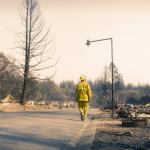More seniors are discovering cameras popping up in their own homes. Adult children often install them, claiming it’s for safety or monitoring care. But the trend is raising questions about privacy, independence, and trust. Retirees may feel conflicted about being watched in their own spaces. Understanding the motives helps explain this growing practice.
1. Fear of Elder Abuse
Adult children worry about mistreatment in nursing homes or by in-home caregivers. Cameras provide evidence of neglect or abuse. Families see this as protection, but seniors may feel invaded. Safety often collides with dignity. Abuse concerns are fueling surveillance.
2. Monitoring Health Emergencies
Falls and health emergencies worry families of aging parents. Cameras offer peace of mind when living far away. They allow children to check on parents in real time. Seniors, however, may resent the lack of privacy. Safety and independence rarely coexist perfectly.
3. Tracking Daily Routines
Some children monitor whether parents are eating, taking medication, or moving around. While intended as support, it can feel controlling. Retirees may feel infantilized by constant oversight. Routine tracking blurs the line between help and control. Good intentions can strain relationships.
4. Financial Exploitation Concerns
Families sometimes install cameras to prevent theft by caregivers or even relatives. Suspicion drives surveillance more than support. While it may deter abuse, it can also create resentment. Seniors may feel like suspects in their own homes. Financial fears add to tension.
5. Legal and Ethical Questions
In many states, recording without consent is illegal. Adult children may unknowingly break the law by installing cameras. Seniors have the right to privacy, even in care settings. What feels protective may be unlawful. Legal clarity is essential before installing surveillance.
Why Privacy Still Matters in Protection
While cameras may bring families peace of mind, they come with trade-offs. Seniors value independence and privacy, even as safety becomes a concern. Balancing protection with dignity is key. Families should seek open dialogue, not silent monitoring. Retirement should feel secure, not surveilled.
Would you accept cameras in your home if your adult children asked? Share your perspective in the comments below.
You May Also Like…
- 6 Financial Habits That Are Causing Distance With Adult Children
- What Do Adult Children Really Think About Inheriting a House With a Mortgage?
- Why Are Adult Children Being Penalized for Caring for Their Parents at Home?
- 6 Ways Adult Children Accidentally Drain Their Parents’ Retirement
- What Happens When Two Adult Children Want Control Over One Parent’s Estate?
Read the full article here














